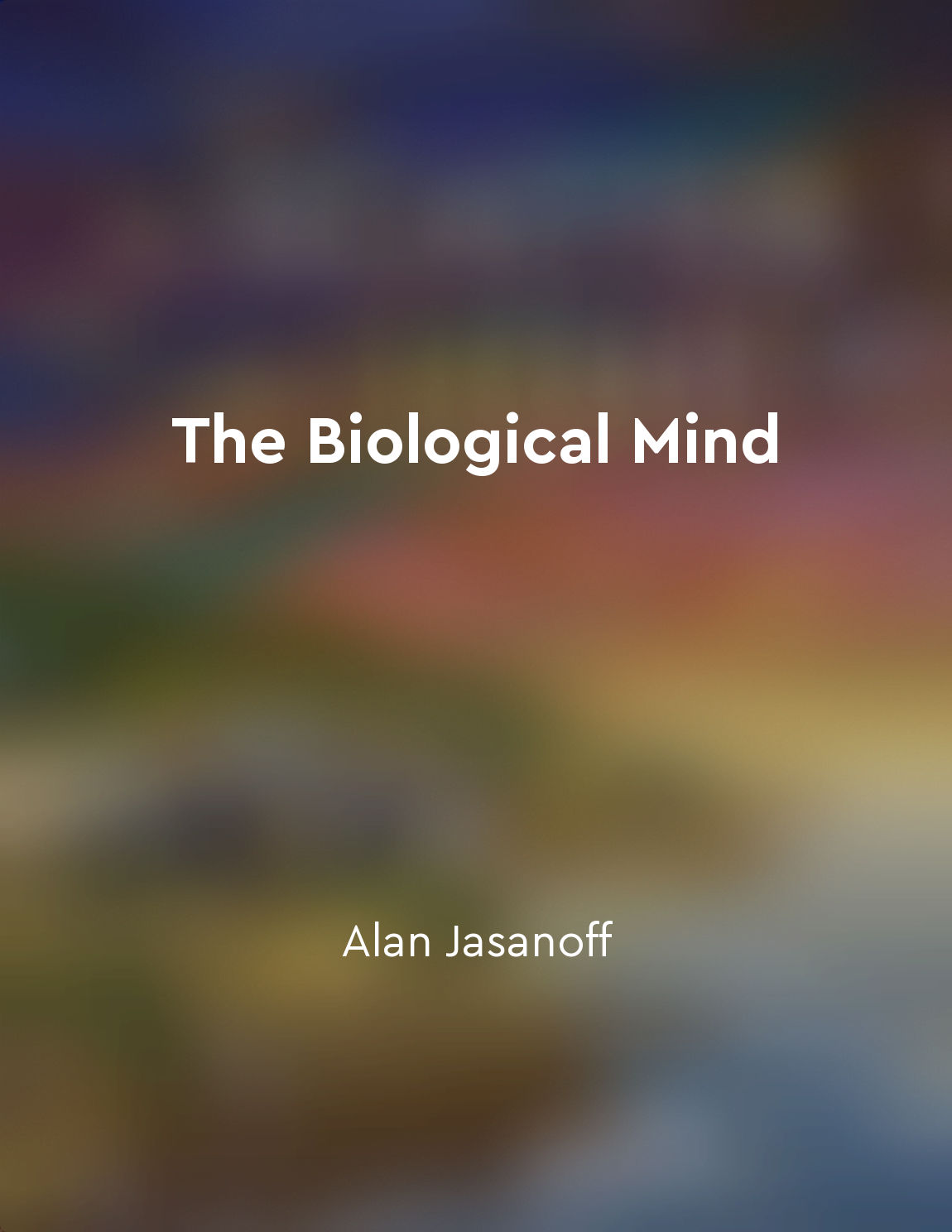Consciousness is a product of brain activity from "summary" of The Biological Mind by Alan Jasanoff
The idea that consciousness emerges from the workings of the brain is a central theme in understanding the biological basis of the mind. Our subjective experiences, thoughts, and feelings are all products of the complex neural processes that take place within our brains. The brain is a highly intricate organ that consists of billions of interconnected nerve cells, or neurons, which communicate with each other through electrical and chemical signals.
These neural networks form the basis of our cognitive functions, such as perception, memory, and decision-making. When we perceive the world around us, our sensory organs send signals to the brain, which then processes this information and generates a conscious experience. Similarly, when we recall a past event or make a decision, different regions of the brain become activated to carry out these mental processes.
Studies using various imaging techniques, such as functional magnetic resonance imaging (fMRI) and electroencephalography (EEG), have provided valuable insights into how different brain regions are involved in generating consciousness. For example, researchers have identified specific brain areas that are responsible for processing visual information, language, emotions, and self-awareness.
Moreover, experiments involving brain stimulation and lesion studies have further demonstrated the link between brain activity and consciousness. By altering neural activity in certain regions of the brain, researchers have been able to induce changes in consciousness, such as altered perceptions or impaired decision-making. Conversely, damage to specific brain areas due to injury or disease can lead to profound changes in an individual's consciousness, such as memory loss or changes in personality.The evidence from neuroscience strongly supports the idea that consciousness is a byproduct of brain activity. The intricate interactions between neurons, neurotransmitters, and neural circuits give rise to our rich inner world of thoughts, emotions, and perceptions. By studying the biological mechanisms underlying consciousness, we can gain a deeper understanding of what it means to be conscious beings in a physical world governed by the laws of nature.

Open in app
The road to your goals is in your pocket! Download the Oter App to continue reading your Microbooks from anywhere, anytime.


